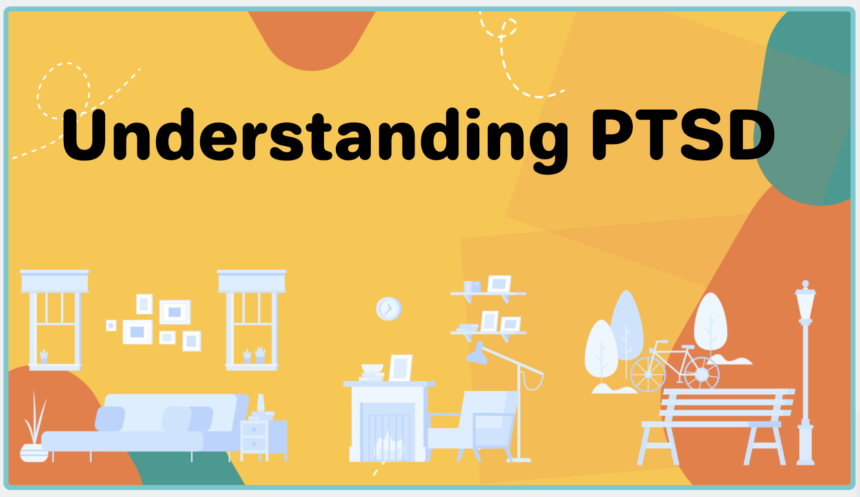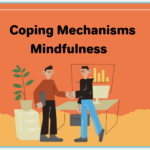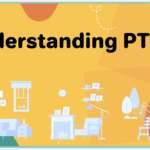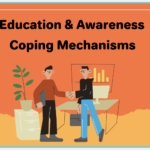Post-Traumatic Stress Disorder (PTSD) is a mental health condition that can occur after experiencing or witnessing a traumatic event. Among UK military veterans, PTSD is a prevalent issue, often surfacing in response to the harrowing experiences associated with combat. This disorder can manifest in various ways, and one of the significant emotional impacts involves symptoms such as irritability and anger. Understanding these symptoms is essential for veterans and their support networks to manage the condition effectively.
The core symptoms of PTSD include intrusive memories, severe anxiety, and emotional numbness, which can lead to significant irritability. Veterans may find themselves reacting strongly to minor frustrations, exhibiting an overwhelming sense of anger that seems disproportionate to the situation at hand. This anger is not merely a personality flaw; it is often an emotional response shaped by the traumatic experiences endured during service. Moreover, these emotional outbursts can result from heightened states of arousal, a common characteristic of PTSD, where the individual remains in a constant state of readiness for perceived threats.
Understanding the psychological processes behind these emotional responses is crucial in addressing irritability and anger. Emotional triggers, such as loud noises, crowded environments, or even certain smells, can remind veterans of traumatic experiences, leading to sudden outbursts of anger. Learning to identify these triggers is an important step in managing symptoms. Veterans are encouraged to seek professional help, where therapeutic approaches, including Cognitive Behavioral Therapy (CBT), can offer practical coping strategies to handle outbursts more effectively.
In summary, the emotional impact of PTSD, particularly irritability and anger, necessitates a comprehensive understanding of its symptoms and underlying psychological mechanisms. Developing awareness around these reactions can lead to healthier management strategies, ultimately improving the quality of life for veterans coping with this condition.
The Connection Between Military Service and Emotional Challenges
The experiences that military personnel undergo during their service can significantly shape their emotional landscapes, often leading to challenges such as irritability and anger. UK military veterans, in particular, face unique circumstances that contribute to heightened emotional responses. One of the most profound influences is combat experience. Exposure to life-and-death situations, the necessity for immediate decision-making, and the stress of being in a combat zone can leave lasting psychological scars. These experiences may lead to conditions such as post-traumatic stress disorder (PTSD), which is often characterized by emotional dysregulation that manifests as anger or irritability.
The transition from military life to civilian life poses additional challenges for veterans. After serving in a structured and high-stakes environment, adapting to civilian life can feel disorienting. Many veterans encounter difficulties in finding a sense of purpose and belonging within a society that may not fully understand the complexities of their experiences. This disconnection can exacerbate feelings of frustration and irritability, as veterans struggle to reintegrate and cope with their emotions in a new context. Furthermore, the societal expectation of strength and stoicism within military culture often discourages emotional expression, making it difficult for veterans to communicate their feelings effectively. This internalized pressure may lead to an increased propensity for emotional outbursts.
Moreover, the impact of military culture cannot be overlooked. The environment during service is often characterized by camaraderie and collective resilience, where vulnerabilities may be perceived as weaknesses. As a result, veterans might find themselves suppressing emotions, which can eventually lead to uncontrollable expressions of anger or irritability when faced with stressors in civilian life. Understanding these connections is vital for addressing emotional challenges faced by veterans, paving the way for effective coping strategies and support systems tailored to their unique experiences.
Recognising Triggers and Patterns of Anger
Understanding the triggers that lead to emotional outbursts is vital for veterans dealing with Post-Traumatic Stress Disorder (PTSD). Emotional responses, particularly irritability and anger, can often seem disproportionate and perplexing. These reactions stem from the complex interplay of traumatic experiences and current life stressors, which can ignite intense feelings. Identifying these specific triggers is crucial for managing emotional health and developing coping strategies.
Common scenarios that may provoke symptoms of anger in veterans with PTSD include perceived threats, reminders of past traumas, or environmental stressors. For instance, loud noises or crowded spaces might remind a veteran of combat situations, prompting an uncontrollable surge of irritation. Furthermore, interactions perceived as confrontational or dismissive can trigger feelings of inadequacy, leading to anger outbursts. Keeping a record of these incidents can help individuals establish patterns, thereby enhancing self-awareness regarding their emotional responses.
Patterns of anger can also be recognized through emotional and physiological responses. Elevated heart rates, muscle tension, and heightened vigilance often accompany feelings of anger and irritability. By being mindful of these signs, veterans can gain insight into their emotional thresholds and anticipatory reactions. Engaging in reflective practices—such as journaling or therapy—can be instrumental in recognizing these triggers and patterns. This process of self-exploration not only fosters greater understanding of one’s emotional landscape but also empowers veterans to adopt proactive measures in managing their anger.
By understanding the specific elements that ignite emotional outbursts, veterans with PTSD can work towards healthier emotional regulation, facilitating enhanced interpersonal relationships and overall well-being. The journey to recognizing and addressing these triggers can significantly alleviate the frequency and intensity of anger attacks, offering a more peaceful existence.
The Role of Support Systems in Managing Emotions
Managing irritability and anger in veterans experiencing PTSD can be significantly influenced by the presence of a robust support system. A well-established network comprising family, friends, and peer groups plays a crucial role in helping individuals navigate the challenges posed by emotional outbursts. Such supportive relationships can provide the empathy, understanding, and validation that veterans often need during difficult times. Moreover, these networks can facilitate open communication, allowing veterans to express their feelings without fear of judgment.
Family members are often the first line of support, as they can identify changes in mood and behavior. It is essential for family members to educate themselves on PTSD and its manifestations, including irritability and anger. This knowledge empowers them to respond appropriately and compassionately during difficult moments. Open communication fosters a safe environment where veterans can share their experiences and emotions, potentially reducing feelings of isolation and helplessness.
Friends also play an integral role in a veteran’s support system. Engaging in activities together can provide a positive distraction from stressors, helping to alleviate symptoms of PTSD. Encouraging social interaction can assist veterans in making meaningful connections outside of their traumatic experiences. Peer support networks are particularly beneficial, as they connect veterans with individuals who understand and can relate to their struggles. These programs often create a space for shared experiences, encouraging participants to share coping strategies that have proven effective in managing emotional outbursts.
Fostering and maintaining these relationships requires effort and commitment. Practical steps include setting regular check-in times, participating in group activities, and encouraging open dialogue about feelings and experiences. By prioritizing supportive connections, veterans can navigate their emotional landscape more effectively, ultimately leading to healthier responses to irritability and anger associated with PTSD.
Coping Strategies for Managing Anger
Managing anger, particularly when it arises from experiences related to post-traumatic stress disorder (PTSD), can be challenging for veterans. However, several coping strategies can be effective in helping individuals regulate their emotions and mitigate irritability. These techniques foster emotional stability and promote overall well-being.
One well-researched approach is mindfulness, which involves cultivating a heightened awareness of thoughts and feelings without judgment. Practicing mindfulness can aid veterans in recognizing the early signs of anger, allowing them to address these emotions before they escalate. Techniques such as meditation, mindful breathing, and sensory awareness exercises can enhance one’s ability to stay present and calm, even during distressing situations.
Grounding exercises also serve as valuable tools for managing anger. These techniques encourage individuals to connect with their physical environment, facilitating a shift away from overwhelming emotions. Grounding can be achieved through a variety of methods, such as using the five senses to notice different aspects of the current surroundings or engaging in physical activities like walking or stretching. By anchoring oneself in the present, veterans can effectively reduce feelings of anger and regain emotional control.
Breathing techniques represent another powerful strategy for controlling anger. Deep breathing exercises help activate the body’s relaxation response, counteracting the physiological symptoms associated with anger. Simple practices, such as inhaling deeply through the nose, holding for a few seconds, and exhaling slowly through the mouth, can significantly decrease stress levels. Regularly incorporating these breathing techniques into daily routines can lead to lasting improvements in emotional regulation.
Employing these coping strategies can facilitate better management of anger and irritability in veterans dealing with PTSD. Through mindfulness, grounding exercises, and breathing techniques, individuals can cultivate resilience, ultimately fostering a more peaceful mindset during challenging moments.
Professional Help and Treatments Available
Post-Traumatic Stress Disorder (PTSD) can significantly impact the emotional well-being of veterans, leading to irritability and anger outbursts. Seeking professional help is crucial for managing these symptoms effectively. In the UK, several treatment options are available, tailored to meet individual needs.
Cognitive Behavioural Therapy (CBT) is among the most effective therapies for PTSD. This structured therapy focuses on identifying and modifying negative thought patterns that contribute to emotional distress. By addressing the cognitive aspects of PTSD, veterans can develop healthier coping mechanisms and reduce irritability and anger levels. CBT often involves practical strategies that can be integrated into daily life, empowering individuals to regain control over their emotions.
Another therapeutic approach gaining recognition is Eye Movement Desensitisation and Reprocessing (EMDR). This therapy is designed to alleviate the distress associated with traumatic memories. Through guided eye movements, EMDR enables veterans to process their trauma more effectively, reducing the associated emotional triggers such as anger and irritability. Numerous studies have shown that EMDR can lead to significant improvements in PTSD symptoms, making it an appealing option for many.
In addition to psychotherapy, medication can play a vital role in managing PTSD symptoms. Antidepressants, particularly selective serotonin reuptake inhibitors (SSRIs), are often prescribed to help regulate mood and alleviate emotional symptoms. It is essential for veterans to work closely with healthcare providers to explore medication options that align with their specific needs and to monitor any side effects.
Overall, it is vital for veterans experiencing PTSD-related irritability and anger signs to seek professional support. Engaging in therapies such as CBT or EMDR, and considering medication, can help manage emotional outbursts effectively. Tailoring treatment to individual circumstances ensures that veterans receive the best possible care in their journey toward healing and emotional stability.
Developing a Personal Action Plan
Creating a personal action plan is an essential step for veterans managing the emotional outbursts associated with Post-Traumatic Stress Disorder (PTSD). A well-structured plan not only helps in acknowledging and confronting these feelings but also empowers individuals to take proactive measures toward improvement. The first step in developing this action plan is setting realistic and achievable goals. It is important for veterans to identify specific triggers that lead to irritability and anger, focusing on manageable aspects of their emotional responses. Establishing goals such as “I will practice deep breathing exercises for ten minutes daily” or “I will keep a journal to track my emotions” can serve as powerful initial steps.
Once goals are established, the next phase involves monitoring progress. This may include daily or weekly reflections on emotional states and situations that triggered outbursts. Utilizing tools such as journals or mobile applications designed for mental health can facilitate this process. Veterans should document not only the events that led to anger but also the coping strategies that were employed, providing insight into what methods are effective and which require adjustment.
The third crucial component of a personal action plan is the willingness to adjust strategies as necessary. It is essential to recognize that progress may not always follow a linear path, and setbacks can occur. Therefore, veterans should remain flexible and open to modifying their approaches based on their monitoring experiences. Regularly reviewing and revising the action plan fosters a sense of accountability and self-improvement. Such a comprehensive approach not only promotes emotional resilience but also enhances the overall quality of life by encouraging proactive engagement with one’s mental health. Ultimately, this structured plan can serve as a vital resource in navigating the complexities of PTSD emotional management.
Success Stories: Overcoming Anger and Irritability
In the challenging landscape of managing PTSD-related anger and irritability, the narratives of those who have navigated similar paths can provide valuable insights and inspiration. Veterans across the UK have shared their personal journeys, revealing both the struggles they faced and the strategies they employed to overcome these emotional roadblocks. For many, the journey begins with acknowledging that anger is a natural response to the trauma experienced. This understanding helps in reframing their emotional experiences, rather than seeing anger as a weakness.
One veteran, who prefers to remain anonymous, emphasizes the importance of seeking help. After years of battling anger alone, he decided to engage in therapy, which opened doors to addressing underlying trauma. Through cognitive-behavioral techniques, he learned to identify triggers and implement coping strategies effectively. His ongoing commitment to self-reflection and therapy has drastically reduced the frequency of his outbursts.
Another inspiring story comes from Sarah, a veteran who faced similar challenges. She discovered that creative outlets could serve as a powerful tool for managing her emotions. By channeling her feelings into art and writing, she found a productive way to express her anger, rather than letting it spiral out of control. Sarah credits her newfound hobbies not only for her emotional relief but also for helping her connect with other veterans who share her experiences and understand her struggles.
These success narratives illustrate that while the road to managing anger and irritability is often fraught with obstacles, it is indeed navigable. Each individual’s journey highlights that setbacks can be integral to growth and resilience. As veterans continue to share their experiences, they foster hope for others facing similar difficulties, demonstrating that lasting change is possible.
Resources for Further Support
Veterans in the UK who are managing PTSD and its associated emotional difficulties, such as irritability and anger, can greatly benefit from various resources aimed at providing support. Whether needing immediate assistance or ongoing help, a number of organizations are available. Below is a selection of useful websites, helplines, and local community services tailored for veterans.
The Veterans UK website is a comprehensive platform providing information on various aspects of veteran life, including mental health resources. Their dedicated helpline offers guidance and support for those grappling with issues related to PTSD and anger. By calling 0800 028 4885, veterans can access trained professionals who understand their unique experiences.
Another vital organization is The Mental Health Foundation. It provides extensive resources regarding PTSD and emotional health, including articles, tools, and links to further services. Their well-researched materials can assist veterans in understanding their emotions and the ways to manage them effectively.
Local community services also play a crucial role in supporting veterans. Organizations such as The Walter Project offer community-based support groups tailored specifically for veterans struggling with PTSD and rage. In these settings, veterans can share their experiences and learn coping strategies in a safe environment.
Finally, the Samaritans provide a 24/7 helpline that can be a refuge during times of acute distress. By calling 116 123, individuals can speak to someone who listens and provides empathetic support, encouraging healthier emotional management.
These resources serve as vital lifelines for veterans, empowering them to seek help and navigate the challenges posed by PTSD and anger issues.






